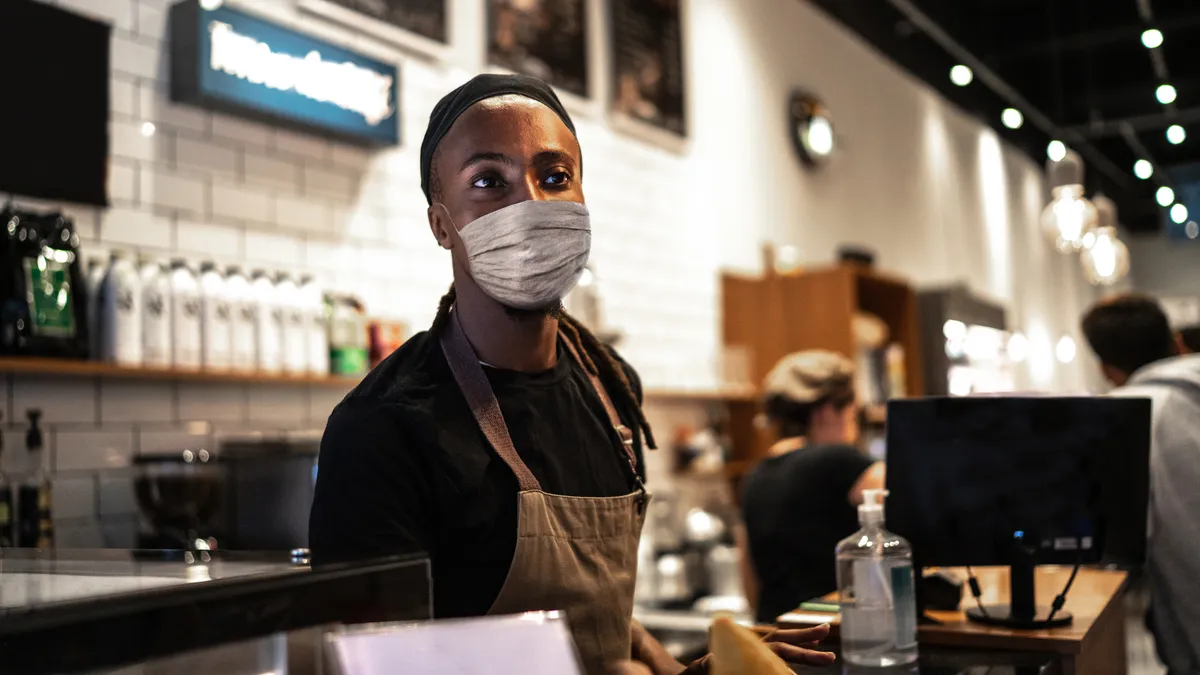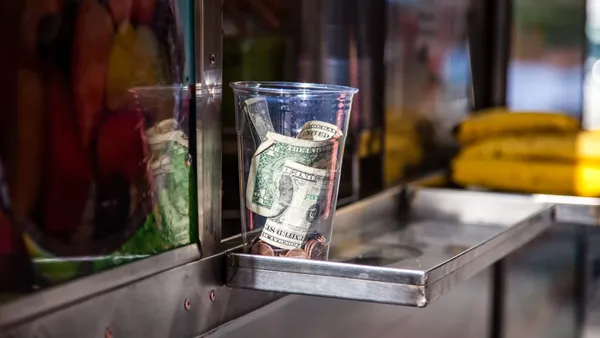Dive Brief:
- Democrats in the House and Senate on Tuesday reintroduced a bill to raise the U.S. minimum wage to $15 per hour by 2025. The minimum wage would be increased in phases, starting at $9.50 an hour the day the a new law takes effect. Once the minimum wage reaches $15, the rate would be reviewed and adjusted each year based on fluctuations in median hourly earnings of all U.S. employees.
- The Raise the Wage Act also seeks to gradually phase out subminimum wage for tipped workers, which is currently $2.13 per hour for adults, and for young and disabled workers. President Joe Biden has expressed support for a $15 minimum wage and for abolishing the tip credit.
- Raising minimum wage for tipped workers in lieu of a tip credit has been a contentious issue for the restaurant industry. Associations like One Fair Wage have long pushed for an end to subminimum wage, arguing that it would lift tipped workers out of poverty. But the National Restaurant Association said in an emailed statement that these changes would result in layoffs and "insurmountable costs" for operators.
Dive Insight:
Some restaurant chains have already made plans to raise worker wages on their own terms in response to the rising tides of the minimum wage across the country. Starbucks, for example, announced in December that it will pay all of its U.S. employees $15 or more per hour within the next two to three years. More than 30% of Starbucks workers already earn $15 per hour or more following the coffee chain's previous investments in raising employee pay.
But this transition will be easier for deep-pocketed restaurant mega chains, many of which will be able to offload the cost burden of raising wages to franchisees. Starbucks owns roughly 9,600 of its U.S. restaurants, however, which means corporate will be shouldering the lion's share of this cost, but the cafe giant is robust enough to absorb this economic impact without distress. The chain also isn't operating on subminimum wages.
It's a very different story for small regional chains and independent restaurants that do take tip credits, however, many of which do not have the resources to hike employee pay while operating on razor-thin margins — especially amid a pandemic economy.
"The Raise the Wage Act imposes an impossible challenge for the restaurant industry. While other businesses on Main Street are starting to see a recovery, restaurants across the country are struggling to stay open amidst indoor dining bans or limits that have been in place for ten months," Sean Kennedy, executive vice president of public affairs for the National Restaurant Association, said in an emailed statement. "Our industry runs on a 3-5% pre-tax profit margin in a good year — during a pandemic is not the time to impose a triple-digit increase in labor costs."
The association argues that this challenge will undercut the take-home pay of tipped restaurant workers who earn more than the proposed $15 minimum wage, arguing skilled hospitality workers earn between $19 to $25 per hour, and will cause more layoffs across the country. The industry is already hemorrhaging restaurant labor, with the Bureau of Labor Statistics reporting that food services and drinking places lost 372,000 jobs in December alone. The NRA also reports that the segment ended last year with 2.5 million fewer jobs than prior to the pandemic.
But associations like One Fair Wage argue that the tip credit creates a work dynamic that is entrenched in racial bias, reporting that Black women tipped workers make almost $5 less than White men tipped workers in the U.S. The association also notes that in the New York restaurant market, where nearly half of restaurant workers are people of color, more than 84% of front-of-house employees in upscale Manhattan restaurants are white — suggesting entrenched inequality between front-of-house and back-of-house opportunities.















